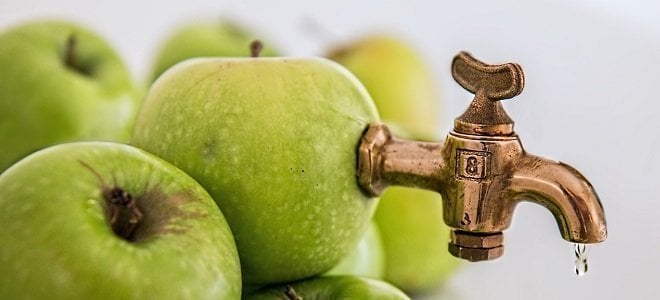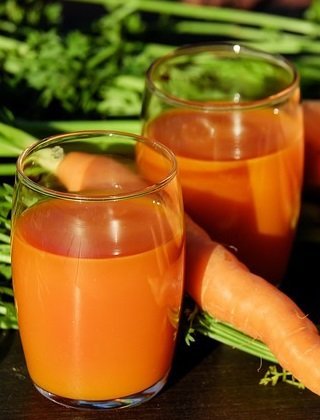
This post may contain affiliate content from which we earn a small commission at no additional cost to you. Read our full disclosure.
Improve Your Health: Masticating Juicer
Interested in a masticating juicer? Find out how they aren’t your typical blender and can produce more juice, improved freshness, and increased efficiency… but are there any cons? After reading the article below, check out the best cold press juicers.
What’s a masticating juicer?
One of the most convenient and delicious ways to meet your daily nutrition requirement is through juicing fruits and vegetables.
You do not always have the time to sit and eat a big bowl of salad and are looking for something that you can grab-and-go.
Even if you do, the nutrients are not released unless you chew it correctly to unlock the nutrients that are locked behind the food wall.
 However, the packaged juice available in markets is loaded with calories and chemicals, that defy the purpose of drinking juice for health benefits or weight loss.
However, the packaged juice available in markets is loaded with calories and chemicals, that defy the purpose of drinking juice for health benefits or weight loss.
Fresh juice can make a big difference in quality, promoting healthy eating habits, and are much pocket-friendly in the long run. Juicers are an important tool that can help you reap the benefits of juicing without the fuss.
There are different types of juicers available in the market today including masticating juicer, centrifugal juicer, and wheatgrass juicer, making it overwhelming for a beginner to start off the journey.
But don’t fret, we are here to help you evaluate one of the best types of juicer, the masticating juicer.
What is a Masticating Juicer?
Masticating juicers (read reviews of the top masticating juicers in 2016, here) are the latest generation of juicers and are also known as the cold press juicer or slow juicer. They rely on the masticating action to derive higher quality and quantity of juice.
As the name suggests, masticating juicers slowly crush and chew the produce and fruits instead of just cutting and chopping them. The crushing and squeezing action results in more juice yield with dry pulp. And the low-speed action makes sure that the ingredients are not heated, cooked up, or oxidized which can destroy its nutrient quality.
This makes sure that the juice remains fresh for longer, is tastier, and does not discolor when left for a long time.
How does it work?
The masticating juicer features an auger as the main component that looks and works like a drilling device. The auger includes a rotating screw that turns at a low speed of around 80-100 RMP and drills out the pulp from the produce. The rotating action crushes and squeezes the vegetables and fruits against the inner wall of the juicer, producing a higher yield of juice that is strained through a wire mesh and collected.
Since the auger rotates slowly, the amount of oxygen that is incorporated is much less and results in less foaming and oxidation. The slow rotation also ensures that the vegetables and fruits are not heated up and nutrients remain intact.
 Pros
Pros
- Dry pulp – even the last drop of juice is efficiently extracted with the action of the auger.
- Higher yield with about 15-20% more juice.
- More economical in the long run.
- Nutrients are preserved due to slow, low heat action.
- Less heat and less oxidation ensure the freshness of the juice.
- Chewing action makes more nutrients available for absorption.
- Leafy greens including wheatgrass, celery, and kale can be easily juiced.
- Also works great at preparing sorbet, baby food, nut butter, sauces as well as ice cream.
- Some versatile masticating juicers also allow making bread dough and pasta.
- Slow action makes sure that your juice remains fresh for a longer period of time.
- Running at a low speed these juicers are much quieter than the centrifugal ones.
- With a limited number of parts, they are easy to clean as they can be easily taken apart, cleaned with warm water (or dishwasher, if the instruction manual says), and joined again.
- Higher warranty period with most brands offering up to 15 years of warranty, since these heavy-duty machines age slowly.
Cons
- Masticating juicers are a little more expensive in comparison to the centrifugal machines with the price starting from $300. However, they prove to be more cost-effective in the long run requiring less maintenance and produce for the same quantity of juice.
- The automatic masticating juicers are a little heavier in comparison to the centrifugal ones. However, they are pretty lightweight (<5lb) and portable.
Wrap-Up
The right fit in your kitchen depends a lot on your requirement and affordability.
If you are looking to juice more citrus, then you should probably just buy a centrifugal. However, if you are looking for a more versatile companion that can replace a number of other machines too, you should definitely consider buying a masticating juicer.
Juicing is one of the best steps towards adopting a healthy lifestyle and no matter what machine you choose you are a step closer to good health.
- Masticating Juicers: Benefits And Drawbacks - August 31, 2016
- The 3 Best Fat Burners And Muscle Building Supplements - August 16, 2016
- Nutrition Tools: The Best Blender For Protein Shakes - April 18, 2016
Disclosure: In the spirit of full disclosure, DIYactive.com may be compensated in exchange for featured placement of certain reviews or links on this website. View our full disclosure.
 Pros
Pros

